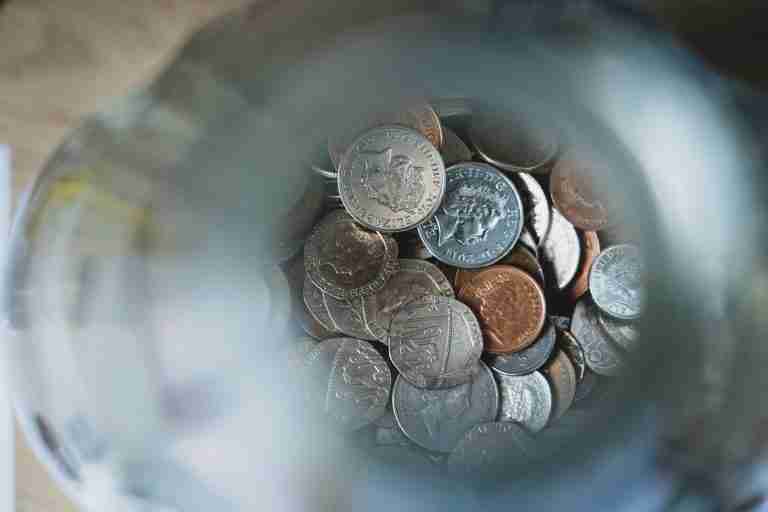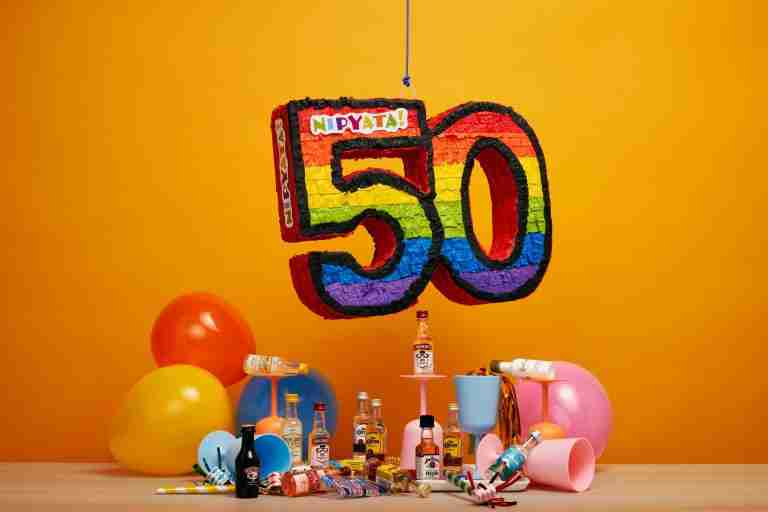How can you retire early? 7 ways to reach financial independence retire early UK.
You can do a few things to reach financial independence and retire early: save aggressively, invest your money wisely, create additional sources of income and keep your expenses low. If you can do all of those things, you’ll be well on your way to retiring sooner rather than later.
FIRE stands for Financial Independence Retire Early. It’s a movement which looks to save and invest their way to financial independence at a much earlier age than the current retirement age of 65.
The FIRE movement’s goal is to achieve financial independence as soon as possible, thereby making paid work optional in some cases as early as your 30s or 40s. That’s decades before the traditional age of retirement.
Would you like to retire in your 30’s, or 40’s, or do you want to work until your 65?
Remember, this could be a choice if you make some changes to your life and get serious about money.
This article covers 7 ways to reach financial independence and retire early.

Who started the Fire movement?
The origins of the FIRE movement come in part from the best seller “Your Money or Your Life” in 1992 by Vicki Robin and Joe Dominguez. Their book popularised the idea of achieving financial independence rather than spending the best days and years of your life working in a 9-5 to make money.
What are the good bits of FIRE?
Having a vision and a plan
One of the main strengths of the FIRE movement is getting people to envision their ideal future and start to plan to make it happen.
It’s very empowering for people to learn the basics of financial planning and realise they can make a significant impact on their financial future by a few tweaks. OR make substantial advances with some more radical financial moves.
Keeping your expenses low
The FIRE movement is excellent at getting people to review their expenses, look for cheaper options and cut out things that are not adding anything to your life. The reduction of your living costs is part of the magic to a less complicated and cluttered life.
Simplifying your life with the reduction of spending and the collection of stuff frees you up to concentrate on the things that are important to you.
Lowering your costs is one catalyst to FIRE, but so is increasing your income if not more so. Increasing your income through selling stuff, improving your skills or starting a side hustle has the potential to turbo your journey to financial independence and making paid work optional.
Saving and investing
The focus of the movement on saving and investing is a crucial driver of taking control of your finances and your journey to freedom and independence.
Letting less money trickle through your fingers helps to keep you focused on what you truly enjoy. Savings help to give you a safety net for when things go wrong and far more options to take different roads rather than being stuck in a 9-5 lifestyle.
Understanding investing and the power of time coupled with compound interest can help you see how even slow progress builds up over time like a snowball to result in financial freedom eventually.
How does the fire movement work?
You get to FIRE my saving a significant amount of your income, well above what would be considered “normal”. Upwards of 50% of your income, but some manage and or advocated for 70-80%. You then invest this in assets that will provide both growth and income.
Index funds and property are two of the principal investment vehicles people in the fire movement choose. The purpose is to use your saving to crate further capital appreciation (what you but goes up in value) and income through dividends (company pay-outs sharing their profit) or income from rents.
Once your investments generate enough income and growth to cover all your expenses, you are financially independent and paid work has become optional.
Maybe the above sounds farfetched, but it is in theory what we are all “trying” to do, i.e. make paid work optional. There will come a point when all of us can’t or don’t want to work for money anymore. Will you try and save as much as you can to set up or speed up your work optional life or depending on which country you live wait to see what the state has in mind for you?
If you don’t design your own life plan, chances are you’ll fall into someone else’s plan. And guess what they have planned for you? Not much”
Jim Rohn
How much do I need to save for Fire?
Well, this all depends on you, your current and hoped-for future lifestyle.
The principle of FIRE revolves around THE RULE of 25. This rule attempts to identify how much money you’ll need to save to be financially independent and retire. The way to use the rule is to x your current yearly spending by 25. This figure gives you the amount of money you might need to live off to retire.
| Currency £, $, € expenditure per year | X 25 |
| 30,000 | 750,000 |
| 40,000 | 1,000,000 |
| 50,000 | 1,250,000 |
The above calculation/s may need to be done on a regular basis as what you need to be financially independent changes as your circumstances change. Some or all of the below may significantly change your cost of living and how much you need to FIRE:
- Children and or caring responsibilities
- Living costs that go up or down for good or bad reasons
- Buying or selling a house
- Moving jobs for better or worse.
- The start or end of expensive hobbies.
- Good or bad luck across your and your family’s life over time.
How can I reach Fire?
You first need to start with a vision for what your FIRE lifestyle would look like. This needs to be compelling to you and whoever is coming on the journey with you.
What’s your vision for your life without the need for paid work. Does it include travelling, further education, volunteering or something else? This vision will push you through the challenges and keep you motivated when things get hard, i.e. you want to waste your money right now and not delay spending it.
Setting a goal for FIRE sets your brain working on how to do it. Once you have a how then you can get on with it.
Work out how much FIRE is going to cost. 25 x your current or predicted future spending. What do you already have and what is the gap to your FIRE number?
What’s the gap between where you are now and your FIRE number?
Could you cut your expenses to get you closer? Earn more money to speed you along the journey? Could you do both?
All the above may sound daunting, but you do have the 8th wonder of the world on your side compound interest.

What is compound interest, and how does it work?
Compound interest is interest earnt on top of interest. So, when you deposit money, it earns interest. And then the next year your original money and the initial interest earns further interest. And on and on its goes as long as you don’t touch the money.
Obviously, with small amounts of money, it mounts up slowly, but over time as your money grows so does the interest on the interest. Just like rolling a snowball in the snow, it gradually gets bigger and bigger.
The longer the compounding goes on, the more significant the amount of money, the faster the compounding will happen. The compounding will work even faster if you keep adding more and more money to the pot also.
How do you not run out of money when you FIRE?
So, once you have saved up 25x your yearly spending, you now need to live off that fund. But how do you spend it without running out of money? Enter the 4% rule.
This rule of thumb gives you a steer to how much money you can withdraw without running out of money. However, it’s a rule of thumb, so things might need adjusting if or when things change for the worse.
What is the 4% rule?
The Four Percent Rule states that you should withdraw 4% of your portfolio each year in retirement to maintain your lifestyle. It was created using historical data on stock and bond returns over a 50-year period.
The 4% rule was put forward as a safe withdrawal rate in an academic paper from Trinity University in 1998. The paper looked at the various scenarios a portfolio of shares could go through and what would be a safe way to withdraw money without running out.
Is 4% rule still valid?
The case against
- The Trinity Study was completed in 1998 and based on a portfolio of US stocks. A lot of things have happened since then that has changed the world: Dotcom crash, the great recession and now Coronavirus. What worked before and historical rates of return may or may not be possible in the future.
- We are living a lot longer now so the sequence of returns or how your portfolio performs must work for many more years. This is especially true if you retire early, i.e. you can expect to be retired for much longer than previously thought.
- The cost of everything keeps going up but especially housing and health care making an accurate prediction of how much money you might need in your old age challenging to calculate but probably more than you think.
- Inflation may also affect the amount of money you need in the future, and this can be difficult to calculate with much accuracy.
- Maybe it’s better to be safe than sorry and use a lower withdrawal rate to ensure you can maintain your lifestyle for longer. Below are a few examples of lower withdrawal rates and what you might need to build up to make it possible.
How much do I need to save for FIRE at different withdrawal rates?
| Annual Spend amount needed | 25 X your spend or 4% withdrawal | 33.5 X your spend or 3.5% withdrawal | 33 X your spend or 3% withdrawal |
| £ 30,000 | £ 750,000 | £ 855,000 | £ 999,900 |
| £ 40,000 | £ 1,000,000 | £ 1,140,000 | £ 1,333,200 |
| £ 50,000 | £ 1,250,000 | £ 1,425,000 | £ 1,666,500 |
| £ 60,000 | £ 1,500,000 | £ 1,710,000 | £ 1,999,800 |
| £ 70,000 | £ 1,750,000 | £ 1,995,000 | £ 2,333,100 |
The case for the 4% rule of thumb
- Some still feel the 4% rule of thumb is good enough to get you close to your FIRE number. Great podcast available here (Bigger pockets) which argues that the 4% rule is based not on a best-case scenario but a worst-case one.
- If things get tricky personally or in the stock market, you can adjust your withdrawal to 3% or 3.5% to cope with choppy water.
Given the above, you could make some changes in your calculations to consider a leaner or fatter version of FIRE.
financial independence, retire early types
What is lean FIRE?
Lean Fire is as it sounds a lower level of spending to get you to financial independence asap. It would mean retiring on the lowest income you can, having led a very frugal life up to now.
This could mean living off £20k-£40k a year, depending on how frugal you wanted to go or what frugal meant to you. In this case, it would mean saving £500,000 – £1million. Based on 25 times your income and withdrawing according to the 4% rule of thumb.
This means a much more frugal lifestyle and avoiding or cutting out many or most of life’s luxuries. It might include living in a low-cost of living area, forgoing holidays abroad and keeping things simple when it comes to day to day spending. Think of your days as a teenager or a student, and that’s the sort of lifestyle you might live.
Is there a fatter alternative I hear you say?
What is FAT Fire?
Fat Fire is a more luxurious way to live while perusing FIRE. You do enjoy luxuries and some of the fine things in life but are also focused on maximising the money you save and invest. This leading to FIRE but at a higher cost of living.
This likely means you are earning and spending more than the average person or family. Large houses, nice cars, and foreign holidays would all be part of this.
Now you might think, isn’t this what most people already doing? Yes and no. The average person living like this has little or no plan to retire early. They are probably not saving much and almost certainly not investing for early retirement.
Fat FIRE might look like a lifestyle of £60k-£80k or more a year. At this level, you should be able to enjoy most of life’s luxuries.
This would mean saving something between £1.5 – £2million. Reaching this level is likely to need a significant salary and savings rate.
What’s wrong with the Fire movement?
The criticisms of the FIRE movement include:
That a lower withdrawal rate between 3-3.5% should now be considered instead of 4% rule of thumb, much has changed since the Trinity study so some feel investors be more cautious now.
Maybe the Fire movement is just a club for people with very large salaries who can easily save significant amounts of money even with modest lifestyle changes. It was thereby making this a rather exclusive club for high paid IT consultants, engineers or doctors.
Financial independence retire early is not without some risks
Are the high stock returns of the 2010s still possible or should people be more conservative in their expectations? Meaning that people would need to save much more into their investments to come near to their Fire number.
Retiring early has many nice problems, but it’s not without trickier questions. If you retire early, you are going to have a lot longer without an income. As we are all living longer and longer, it could mean you are going to be retired decades longer than you worked. Can your savings and investments last 40 or more years?
Maybe the pursuit of Fire might be the wrong goal for you. Should you look more to find the career you like rather than no work?
Once you have Fired what will you do with yourself? Yep, beaches and parties will be good for a while, but then what? What will be your life’s purpose, and how will you now use your time?
None of the above can take away from being financially independent and not needing to work. You just might like to work but luckily now that you have reached FIRE you don’t “have” to work, which would be an excellent place to be.
Financial independence UK resources
Here are a few resources related to the FIRE movement in the UK:
- The FIRE Starter – This blog by a UK-based FIRE enthusiast offers insights, strategies, and personal experiences on the journey to financial independence and early retirement. Website: thefirestarter.co.uk
- The Escape Artist – This website provides valuable information on financial independence, investing, and early retirement. It offers practical advice and case studies specifically tailored to the UK audience. Website: theescapeartist.me
- Monevator – While not exclusively focused on FIRE, Monevator is a popular UK-based finance blog that covers various aspects of investing, saving, and achieving financial independence. It offers a wealth of resources and guides suitable for FIRE enthusiasts. Website: monevator.com
- Reddit – The subreddit r/FIREUK is a community of like-minded individuals pursuing financial independence and early retirement in the UK. It’s a great place to connect with others, seek advice, and find UK-specific resources. Website: reddit.com/r/FIREUK
- Podcasts – The Meaningful Money Podcast hosted by Pete Matthew covers a range of personal finance topics, including FIRE principles. It provides practical guidance and actionable advice for achieving financial independence in the UK. Website: meaningfulmoney.tv
These resources can serve as starting points for exploring the FIRE movement in the UK and provide valuable insights into how to become financially independent uk and early retirement strategies specific to the UK context.
Financial independence retire early calculators.
Here are a few of the best Financial Independence Retire Early (FIRE) calculators, including links:
- FIRECalc: FIRECalc is a popular calculator that estimates the success rate of your retirement plan based on historical market data. It considers factors like portfolio value, spending rate, and retirement length. Website: firecalc.com
- cFIREsim: Similar to FIRECalc, cFIREsim allows you to simulate retirement scenarios and assess the probability of success. It considers investment returns, inflation, and withdrawal rates. Website: cfiresim.com
- Net Worthify: Net Worthify offers a simple yet powerful calculator to track progress towards financial independence. It visualizes projected time to reach FIRE based on savings rate, expenses, and investment returns. Website: networthify.com/calculator/earlyretirement
- NerdWallet Retirement Calculator: NerdWallet provides a comprehensive retirement calculator that considers various financial factors to determine the feasibility of early retirement. It offers personalized insights and strategies. Website: nerdwallet.com/investing/retirement-calculator
- Candid Money Retirement Calculator: Candid Money offers a retirement calculator that considers income, savings rate, investment growth, and inflation to project retirement goals and timelines. It provides a clear assessment of your financial independence journey. Website: candidmoney.com/calculators/retirement
- ChooseFI Retirement Calculator: The ChooseFI Retirement Calculator estimates the number of years it will take to achieve financial independence. It considers income, expenses, savings rate, and investment returns to project your path to FIRE. Website: choosefi.com/calculators
These calculators, including those from NerdWallet, Candid Money, and ChooseFI, provide valuable insights into your financial independence and early retirement planning. Using these tools, you can make informed decisions about saving, investing, and adjusting your financial strategies.
FAQ: Financial Independence retire early UK
How to save money and retire early?
Another way is to save money by living below your means and investing the difference.
One approach to saving money is known as “pay yourself first.” This means setting aside a fixed percentage of your income each month into savings or investments BEFORE you pay your other bills. This ensures that you are prioritizing your savings goals and making them a priority in your budget.
Another strategy for saving money is to create a budget and stick to it. A budget will help you track where your money is going each month and help you identify ways to save more money towards financial freedom.
Can I retire at 55 with 300K UK?
-What sort of lifestyle are you hoping to live?
-An invested fund of 300k might throw off 12k a year, possibly more if you want to end up with nothing (ideally on the day you die and not before)
Read more here about what might be possible with 300k.
How much do I need to retire early UK?
-This way there is a reasonable expectation that you would be able to take out 4% from the fund each year without running out of money.
-Enough to have a dignified, secure, independent and comfortable lifestyle – how much would you think that would cost in your situation?
How can I be financially independent and retire early?
-Invest in yourself. Make sure you are constantly learning and improving your skills. The better you get, the more valuable you will be to others.
-Live below your means. You don’t need to keep up with the Joneses. Focus on saving as much money as possible so you can invest it and grow it over time.
-Create multiple streams of income. Don’t rely on just one source of income. Instead, have multiple sources so that you still have others to rely on if one dries up.”
– Invest in assets early and often – property businesses and the stock market.
How much do you have to earn to be financially independent UK?
-Obviously, the more you earn, the easier it is to save but it’s more about what you get to keep than what you earn. If you spend all your money, it doesn’t matter what you earn.
-The greater your savings rate, the sooner you will become financially independent.
How much for financial independence retire early?
This 25x figure should be enough to withdraw 4% from and “never” run out of money.
How can I retire early and get financial independence?
What is the 4 rule in FIRE?
It is a guideline for how much of your retirement savings you can withdraw each year without running out of money before you die.
The 4% rule states that you can withdraw 4% of your invested assets each year and still have a good chance of maintaining your nest egg throughout retirement.
This withdrawal rate is adjusted for inflation, so the amount you withdraw will increase each year. The 4% rule was developed using historical data on stock and bond returns over the 50-year period from 1926 to 1976, focusing heavily on the severe market downturns of the 1930s and early 1970s.
It is important to note that the 4% rule is just a guideline and is not a guarantee of success.
Many FIRE investors instead opt for a dynamic spending strategy that allows them to spend more when markets perform well and less when they don’t, which increases the likelihood of success.
Is 55 too early to retire?
You could have a long life in retirement so its important to have engaging projects to get on with including time for friends, family and leisure.
Can You Do FIRE if You Have Kids?
It may take additional planning and budgeting, but it is not impossible.
One of the best strategies is to build a financial buffer before having children.
This can involve saving money or paying off debts to have a cushion that can be used to cover expenses during the early years of parenthood.
Additionally, creating an emergency fund that you can use if unexpected expenses arise is important.
It is also important to consider your income level in order to determine how much you can save. Maximising your income by increasing your hours or asking for a raise may be necessary to reach your financial independence goals.
Once you are in a more secure financial position, creating a budget and tracking your expenses is important. Doing this can help identify areas where you can save money and invest in your future.
Finally, diversifying your investments is another key step to achieving financial independence. This can involve investing in stocks, bonds, mutual funds, or real estate. Investing in various assets can help reduce risk and increase your chances of reaching your financial independence goals.
How Do I Achieve FIRE With a Low or Average Salary?
First, you must create a budget that works for your lifestyle and spending habits. This can be done by noting down all your income, expenses and debt, and then creating a plan to pay off your debt in order to free up more money for other goals.
Second, you should look into creating an emergency fund of at least 6-12 months of expenses. Having an emergency fund can help you weather financial storms and avoid taking on new debt.
Third, you should set a goal to save 20-30% of your income for retirement. This will help you reach FIRE much sooner. Automate your retirement savings and set up specific goals for how much you want to save each month.
Fourth, look into ways to lower your expenses. If you’re living paycheck to paycheck, trimming expenses can free up more money to save towards your retirement. Start by reviewing your monthly expenses and making some adjustments. Consider cutting back on dining out, entertainment, and subscription services.
Finally, look into investing in income-generating assets. These can be stocks, bonds, mutual funds, or even rental properties. Investing for income can help you reach FIRE faster by providing an additional source of income.
Achieving FIRE on a low or average salary requires dedication, discipline, and hard work. However, it can be done if you’re willing to make the necessary sacrifices and take advantage of the opportunities available to you.
Summary: Financial Independence retire early UK
- Have a clear vision for your ideal lifestyle and set out a plan to achieve it.
- Save a lot more than you spend. Do as much as you can to grow this gap
- Keep your costs as low as you can. Food, accommodation, travel, utilities, banking and investing. This includes ensuring you are as tax efficient as you can. Use tax-efficient savings wrappers like an ISA or Pension to reduce your tax bill.
- Protect yourself from disaster. Set up an emergency fund of 3-6 months or more depending on how safe you want to feel. Insure yourself against significant misfortunes. This might be through savings, so self-insuring or through health, life, critical illness and or income protection insurance.
- Invest your surplus savings into assets that will grow in value and produce an income, i.e. shares and or rental properties
- Continue your financial education. Read books or blogs, listen to podcasts get a financial coach.
- Raise your income. Could you work for a promotion at your current job? Move to a new role for more pay? Start a side hustle connected to your experience, hobbies or interests?
Take Action on your life and finances now!
Are you in your 40s and feeling the financial squeeze? You’re not alone. This can be a challenging time financially, as you may be:
- Juggling mortgage payments 🏠
- Managing family expenses 👨👩👧👦
- Planning for retirement 🏖️
- Saving for your children’s college education 🎓
- Paying off lingering debts 💳
It’s time to stop the stress and start your journey to financial happiness. Financial coaching can provide the tools and guidance you need to navigate these challenges. With coaching, you can:
- Create a realistic and manageable budget 💼
- Develop a clear and achievable savings plan 🐖
- Learn effective strategies for debt repayment 🔄
- Understand and plan for future financial needs 📈
- Start saving and investing for financial independence 💰
- Gain peace of mind knowing you’re on the right track 😌
Don’t let financial worries cloud the prime of your life. Schedule a call with me today at Financially Happy Money Coaching, and let’s turn your financial stress into financial success!
Together, we can build a plan that aligns with your goals and sets you on a path to financial freedom. Let’s make your money work for you, not vice versa. 💪💰






